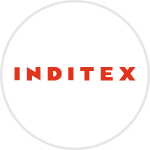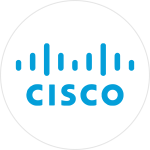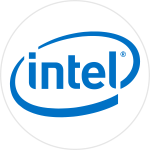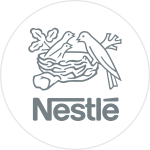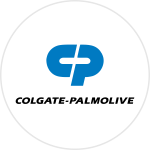Best Supply Chains from Companies Around the World

Best-in-class supply chains incorporate a key list of characteristics that define their success and set them apart with exemplary management. These characteristics include a proactive use of big data, highly optimized inventory management, flexibility and speed with order fulfillment, customization with process implementation, energy sustainability, and of course, compliance. Sustainable supply chain companies are the ones that will succeed far into the future, since these practices reduce costs and improve efficiency, in addition to preserving natural resources.
British-Dutch consumer goods company Unilever is the third-largest of its kind, and offers food, beverages, personal care products, and cleaning agents. At the beginning of 2000, Unilever began a five year growth strategy, which included a significant restructuring of their supply chain management. They focused on organization, global procurement processes, supply chain executives, supplier involvement, and technology. As a result, they achieved $14.24 billion in savings in 2003 from its initiatives, and Unilever became a leader in the consumer packaged industry for technology adoption.
The leading fast-food brand has consistently ranked high for excellent supply chain management due to a system where success is shared and value is exchanged between McDonald’s and their suppliers. This approach has been wildly successful, as McDonald’s is now in more than 100 countries with over 35,000 restaurants serving 68 million people each day.
With eight brands and nearly 7,300 stores worldwide, Inditex is one of the largest fashion retailers in the world. The company has achieved notable success from a flexible supply chain that includes more than 1,700 suppliers and almost 6,300 factories that are strategically located in over 50 countries. What’s more, everyone involved in Inditex’s supply chain shares the same values of social and environmental responsibility values as set out in the company’s Code of Conduct for Manufacturers and Suppliers.
Leading the world in IT and networking with their revolutionary computing architecture, Cisco Systems has a highly diverse and extensive supply chain that spans the globe. The company recently transformed its supply chain management in order to increase business scale and agility. They were able to increase their agility, resilience and ability to scale by implementing new business models, a single ERP instance, standardization and automation throughout the supply chain.
Worldwide fashion retailer H&M has been globally recognized for their financial and marketplace success. The company’s reliance on efficiency and integrated systems for some of the major components of their supply chain, such as inventory management, has played a significant role in their success with stock control. H&M’s strategy with their supply chain is focused on cost-efficiency with production and reducing lead times for inventory—both factors that have led to their notability for offering chic, trendy styles with rapid turnarounds.
Manufacturing technology and operations are at the heart of Intel’s business, but the company has put significant additional resources into transforming their supply chain to be more responsive and integrated in order to meet market demands. This effort has successfully increased productivity, while reducing process cycle time and making inventory levels more efficient.
Nestlé is the largest food and beverage company in the world, with over 2000 brands and presence in nearly 200 countries. Last year, the global food manufacturer launched a crowdsourcing initiative to engage their supply teams with problem solving and new business solutions for key aspects of their supply chain, including responsible sourcing.
Footwear and sports apparel manufacturer Nike is actually pioneering the industry with their strategy for outsourcing manufacturing. With more than 700 factories located in 42 countries around the world, Nike has enjoyed unprecedented supply chain success. The company’s focus areas include lean manufacturing for increased labor productivity and reduced waste, material consolidation, and innovation and modernization of their manufacturing process.
Over the past decade, Colgate-Palmolive underwent an extreme reorientation of its supply chain to move from regional manufacturing to global manufacturing. The worldwide consumer products company has fixed some serious inefficiencies in its supply chain through this process, generating more than $4 billion in savings. Four important changes are factors of this successful transition: the elimination of silos caused by regional supply chains, expanding the procurement footprint to the global marketplace, investing in customer service and logistics, and focusing on support.
Due to size alone, Starbucks’ supply chain has a lot of potential for inefficiencies and procurement waste. However, the popular coffee company’s dedication to sustainability and efficiency help keep the supply chain operating smoother than you may expect for a company with 15,000 stores in more than 50 countries. This is because Starbucks employs some critical supply chain best practices such as centralizing their management system, leveraging digital technologies, managing their supplier relationships, strictly vetting suppliers, committing to innovation, and eliminating waste and inefficiency.
As one of the leading food and beverage companies in the world, PepsiCo is the parent company for hundreds of diverse and beloved household brands. The company has done a great job transitioning its supply chain capacity to handle more complex products to follow consumer trends to more nutritious foods than carbonated soft drinks and processed snacks. PepsiCo has developed significant improvements such as sustainability initiatives, collaborative production scheduling, setting inventory buffers, and selective procurement and sourcing, to achieve a resilient and efficient supply chain.
Formerly known as the Minnesota Mining and Manufacturing Company, 3M produces more than 55,000 products including adhesives, laminates, electronic materials, medical products, optical films, dental and orthodontic products and more. Starting in 2012, the company underwent a massive restructuring of their supply chain, from a linear, analog structure to a technology-based one. “Digitization became the tool of choice for synchronizing all links of the 3M supply chain, promoting collaboration and open communications both upstream and down, with suppliers and customers alike,” Supply Chain Brain reports.
The manufacturer of pharmaceutical and consumer packaged goods and medical devices has been making consistent improvements to their supply chain, with significant advancements happening as recently as last year. Developments include procurement sustainability, measuring energy use and reducing greenhouse gas emissions, lean manufacturing, responsible sourcing, and increasing standards for suppliers.
As the world’s largest beverage company, Coca-Cola has 21 billion-dollar brands, with nearly 4,000 different beverages to choose from and a presence in every country on Earth. In order to serve consumers with greater efficiency and reduced cost, 95 percent of the beverages are made in the country where they are sold. By keeping manufacturing and sourcing local, The Coca-Cola Company is able to minimize production time. Sustainability, technology and retailer relationships are also key areas of focus in the company’s supply chain.
Communications and information technology company Nokia owes much of their supply chain management success to a dedication for agility. A history of adaption, coupled with precise supply chain management and long-standing good supplier relationships has resulted in Nokia’s global success. The company’s supply chain agility can be replicated by implementing the following efforts: an effective flow of information between suppliers and customers, collaborative supplier relationships, a plan and design for postponement, inventory buffers with key component stockpiles, a dependable logistics system, and contingency plans with assigned teams for crisis management in the event of a supply chain disruption.
As the largest producer of chemicals in the world, German company BASF uses science and innovation to create chemical products that serve the society of today as well as the future. The company applies a combination of social responsibility and environmental protection to its production efforts, and sustainability is at the forefront of its supply chain management priorities. BASF is currently working toward their 2020 goal of reviewing the sustainability performance of 70 percent of their relevant suppliers and developing action plans for necessary improvements.
Safety, reliability, efficiency and sustainability are at the top of the priority list for Schneider Electric’s connected technologies and solutions. According to the company’s CEO and President, Annette Clayton, “As a purpose-led company, we have the responsibility to bring safe, sustainable, reliable, and connected energy to our customers, so the supply chain plays an essential role now more than ever. With our digitization efforts, our supply chain continues to grow smarter and enables us to understand how we must tailor our offerings to meet customers’ needs and achieve our purpose.” Schneider Electric’s supply chain is tailored to be collaborative, lean, agile, project-driven, and fully flexible.
Multinational retailing corporation Wal-Mart is the second-largest employer in the United States, and their supply chain management is a logistical and operational masterpiece. Efficiency and effectiveness are particularly important, since Wal-Mart has more than 11,000 stores located in 27 countries, with an average of $32 billion in inventory to manage. The company has made their supply chain work for them with fewer links in the chain, strategic vendor partnerships, a cross-docking inventory tactic, and technology innovations to cut costs.
HP is most well known for their printers and other IT products, but they also have a serious dedication to sustainability for their company and the global community through their supply chain excellence. By 2025, HP has goals to double their factory participation in sustainability programs and improve the skills and well-being of 500,000 factory workers. Transparency about the manufacturing process, coupled with supply chain responsibility efforts that are based in the overarching goal of sustainability help to create an important impact beyond HP’s factory floors.
French cosmetics giant L’Or√©al has been highly innovative with progressive changes to improve their supply chain in recent years, beating their peer group in the cosmetics and beauty category with the fastest rate of improvement with key supply chain metrics. It’s a complex business, with about half of products each year being brand new. That creates a lot of detail with inventory management, but L’Or√©al is excelling.
With essential products that touch one in every four people around the world every day, Kimberly-Clark is a personal care corporation whose consumer products (mostly paper-based) are integral to almost every household. The company’s focus is on building powerful partnerships in order to lead the charge with a sustainable and responsible supply chain. Kimberly-Clark is currently focused on implementing connectivity throughout the supply chain, supported by proactive environmental and social programs.
BMW sees its suppliers as the key to driving value, innovation and quality with its vehicles under the BMW, Mini Cooper and Rolls Royce brands. The company recognizes that their ability to perform and develop sustainably depends on the standards that their global supplier network follows, and therefore, BMW has implemented The BMW Group Supplier Sustainability Standard. “Our collaboration with our suppliers is based on a mutual understanding of product and production quality, security of supplies, competitive prices and innovation, as well as the continuous integration of our sustainability,” according to the company.
Until very recently (April, 2017), Diageo was the largest distiller in the world. The global leader in beverage alcohol has focused its supply chains on creating value directly in the local economies where they operate. Diageo’s strategy for achieving a sustainable supply chains is based on sourcing responsibly, reducing their environmental impact, and creating supply chain partnerships that have agricultural value. Their supplier relationships are based on key principles including optimizing due diligence processes, building supplier capability with training where they can, and supporting local businesses by creating value.
Multinational Chinese technology company Lenovo is committed to responsible corporate citizenship, which is implemented through the company’s supply chain management practices and values. With over 25 key indicators that measure supplier transparency, commitment and performance, Lenovo is more able to report on current standings and make better future business decisions. The company’s global supply chain management includes important initiatives and practices such as holding suppliers to a standard code of conduct, being a member in the Electronic Industry Citizenship Coalition (EICC), requiring supplier reporting on greenhouse gas emissions, water consumption and waste, and more.
Based out of South Korea, electronics company Samsung has stellar supply chain management. With a focus on sustainability across the board, Samsung’s supply chain system includes ongoing monitoring of risk factors, programs to support its supplier’s competitiveness, improved work environments, active consumer communication channels, on-site quality inspections and more.
Featured photo source.



